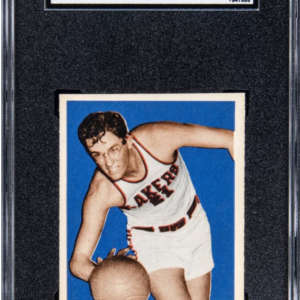In the dynamic world of sports trading cards, a legal battle is brewing between two industry giants. Fanatics, a major stakeholder in the industry, is currently facing an antitrust lawsuit from its rival, Panini. The contention arises primarily from Fanatics’ burgeoning endeavors, especially as it gears up to dominate the NBA and NFL card segments.
Choosing the U.S. District Court in Tampa, Florida as their battleground, Fanatics remains unwavering. They argue that Panini’s claims lack substance, especially when evaluated against antitrust standards. Moreover, Fanatics points to Panini’s historical actions in the sector as evidence of the pot calling the kettle black.
A detailed 35-page document presented by Fanatics recounts how Panini, for over a decade, had been securing exclusive intellectual property licenses from various sports organizations and athlete associations. This, Fanatics points out, is similar to the actions Panini now opposes. Elaborating on this, Fanatics notes how Panini rose in the market by pushing competitors to the periphery via exclusive agreements. Fanatics contends that if Panini now feels eclipsed, it’s due to the evolving competitive scene rather than any misconduct on their part.
Panini’s main grievance revolves around Fanatics’ aggressive pursuit of NBA and NFL licenses. However, Fanatics counters this, stating that they acquired these 2021 exclusive licenses, including ones with the NBA, NFL, and MLB, through sheer competitive edge.
In addition, Fanatics underscores their ethical approach. They didn’t discourage any sports organizations or players’ unions from considering offers from Panini. Furthermore, there were no covert maneuvers to tip the balance in their favor. In Fanatics’ view, such scenarios are purely fictional.
Fanatics also emphasizes the absence of concrete proof from Panini, supporting their allegations in the antitrust suit.
But the saga doesn’t end there. Panini has expanded its legal offensives beyond antitrust issues, launching legal actions in Texas. This follows a mass departure of over thirty key Panini personnel to Fanatics. Adding to Panini’s grievances, Fanatics heavily invested in the printer responsible for Panini’s card production. Furthermore, exclusive signing contracts with three emerging stars from the latest NFL Draft have meant their autographed cards are missing from Panini’s NFL collection.
Fanatics perceives these developments as the ebb and flow of market dynamics. After obtaining their licenses, their goal was to elevate the collector’s journey, enhancing all aspects of the trading card experience. This ranges from recruiting talent, bolstering printing capabilities, to clinching player endorsements.
Standing firm in the face of these accusations, Fanatics dismisses claims of any contractual violations related to ex-Panini employees joining them. Their perspective remains unaltered: these professionals joined Fanatics for better remuneration. Additionally, Fanatics sees securing agreements with up-and-coming stars as both a strategic move and an entirely legal one, aimed to expand their market reach and benefit their licensing partners. They are adamant that these endeavors aren’t a scheme to destabilize Panini’s market position.



